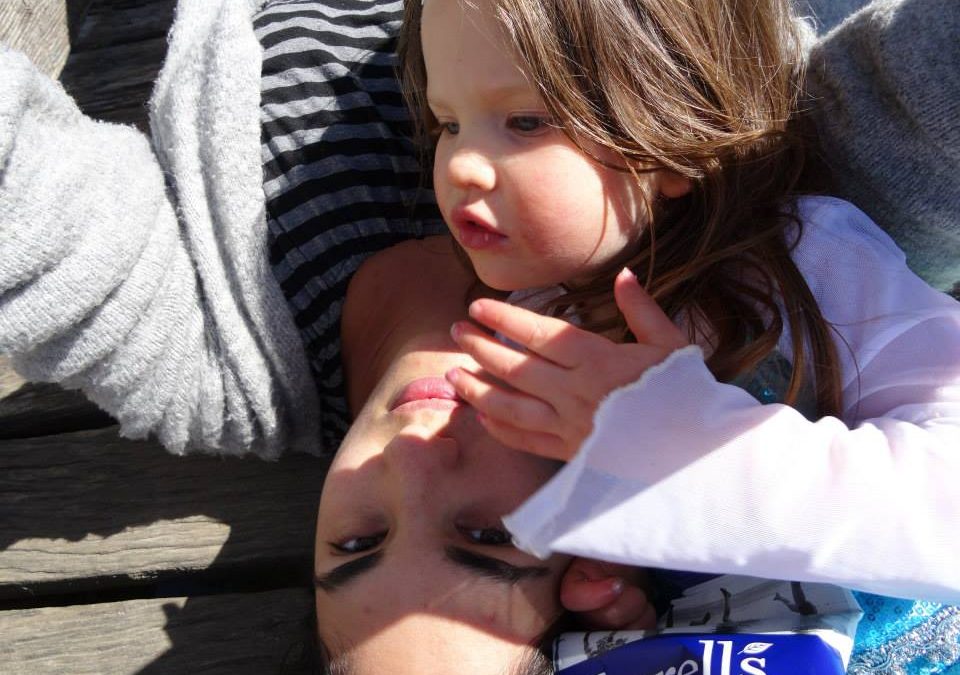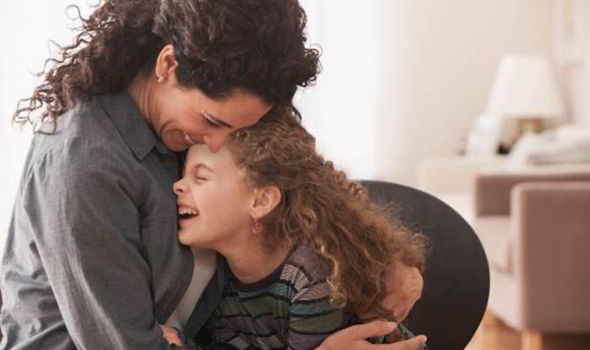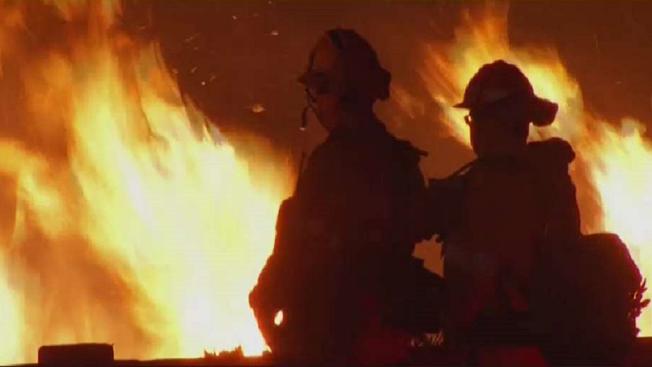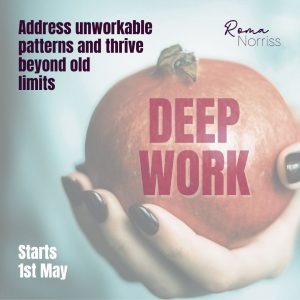
by Roma | Nov 9, 2020 | anxiety, parenting, relationships, trauma
I notice that in our parenting we tend to fall with varying degrees, into one of two camps; distancer or pursuer. Although these are terms traditionally used in the context of couples (it is a universal pattern that in relationship one partner takes the distancing role and the other pursues) I think we also have these tendencies in relationship to our children. The reason we fall into these dynamics are due to our attachment patterns. As babies if we had enough experience of being able to trust that our caregivers would respond when we needed we would become securely attached. If our caregivers weren’t always responsive, but connection was a good thing when we got it, we were more likely to be anxiously attached; constantly seeking out and reaching for connection. If our caregivers were more frightening than reassuring, we learned to keep our distance from them to feel safe, known as avoidantly attached. If we had a parent who was sometimes attentive and sometimes frightening and we couldn’t predict when, we may have developed a disorganised attachment (meaning that due to this unpredictability we couldn’t rely on an organised strategy that would ensure our needs were met so we swing between anxious and avoidant strategies in a disorganised fashion). As adults we are still governed by our attachment patterns from babyhood. You may notice you have a different pattern with your partner than you do with your kids. We can also vary either with different partners/children, or in different contexts. These patterns are hardwired in us. I’m going to describe these patterns, slightly playfully, with the awareness that...

by Roma | Nov 4, 2020 | parenting, relationships, trauma
I spent the first 5 weeks of my life in an incubator. I must’ve cried as many times as babies do during those weeks, except the nurses would only come every 4 hours. When they did come I imagine it was either to ensure I received formula via tube or to perform sometimes painful procedures. My mother came to visit each day. Apparently I used to become lively as soon as I heard her voice coming into the neonatal unit. She sang to me and held me. This experience of being sometimes so loved and sometimes so neglected left me with what they call an ambivalent attachment status. It has permeated my adult relationships, leaving me anxious and distressed when an attachment figure goes off radar. It was only through my quest to become a better parent that I uncovered the relevance of this. Attachment researchers Mary Main et al discovered something incredibly enlightening in a study they dubbed the Adult Attachment interview. What they found was that they could predict with 85% accuracy, a child’s attachment status based on the coherency of their parent’s biographical narrative. What this means is that the hurts that Life deals us can impact on how coherently we can tell our life story. All the hurts we have endured; physical and emotional, accumulate in the body. When we are holding a certain level of upset from past hurts, we tend to skip around when we tell our story. Feelings come up, we go off on different tangents and remember details in the wrong order. Conversely, when we have processed these hurts, we begin to tell...

by Roma | Aug 9, 2020 | anxiety, birth, parenting, pregnancy, relationships, trauma
Click here to open pdf When my first child was born I was so ready for him and longing to meet him. My body however wanted to freak out and be taken care of so it generated a uterine infection that left me sweaty and comatose for the first 5 weeks of my son’s life. This was the exact duration I had spent in an incubator, separated from my mother when I was born; a childhood trauma lying dormant in my system. Fast forward a year or two, being with a toddler felt mostly intolerable. The months blurred by, but the days were each one an epic, painstaking marathon, that required seemingly impossible levels of determination. The only thing preventing me from enjoying this sweet little, curious, funny person was an internal chasm of latent, unresolved feelings which made a normal day feel like I was drowning. Post Traumatic Stress Disorder (PTSD) is usually something we associate with war veterans or people who have witnessed shocking events. But Complex PTSD is something slightly different. It can occur through a longstanding sense of not being seen and upheld by those around us when we were growing up, or an accumulation of relatively minor but frightening, neglectful or confusing experiences. Things that we tend to normalise like a parent becoming scary when angry, or never being allowed to express our emotions, or not receiving the attention and delight that we really needed, can all become internalised as complex trauma. Flashbacks are less visual and more visceral than typical PTSD flashbacks and we often don’t realise we are having one. The...

by Roma | Mar 24, 2019 | anxiety, parenting, relationships, trauma
So often, I’m amazed by the power of this therapeutic parenting work, to shift not just tricky behaviours, but entire patterns that I had written off as just being part of my or my child’s personality. I’m very close to my kids, but they’ve always been kinda avoidant with me. Wanting physical contact but wriggling away from it after a few seconds and pretty much always choosing daddy over me – since they were babies. I just assumed it was how they were. Last spring I undertook some very deep emotional work on early separation in my listening time over several weeks. It was a huge emotional project that has involved lots of protesting and crying for my mummy and it culminated in working quite intensively on this theme for a few days with my Listening Partner. The work we did felt profound and left me feeling freer, more myself and bigger in the world. My posture changed quite noticeably and I became much more assertive. And seems like my kids could just feel it before they’d even seen me. When I picked them up from school after this emotional intensive, they both flung themselves into my arms for the first time ever! Except of course, I realised the distance had always been… in me. They were squabbling over who got to sleep in my bed or cuddle me, my daughter wanting me to constantly play with her. It’s like the channel for my love getting to them was blocked, I was going through the motions but it wasn’t getting through. Our children’s issues...

by Roma | Nov 2, 2018 | parenting, relationships
In those moments when we’re just about to lose it with our kids and we don’t really want to blow up at them, it’s good to learn how to de-escalate. It often feels way more urgent than it actually is. Start by asking yourself “is the house on fire?” And if it’s not, here’s what you need to do instead of freaking out. Try my 5 step protocol Stash your kids somewhere safe for 5 mins (if developmentally appropriate). If they are squabbling, separate them. If they need entertaining stick on an audiobook or get out a special toy you hide except for in these moments, or occupy them with a much coveted foodstuff. Go where you feel safe and ideally not overheard. Lots of folks use the bathroom or car if nowhere else can work. Call one of your Listening Partners. If you do not have one of these we suggest rectifying this immediately, but in a pinch point 4 can be done alone (or at least with pillows and a baseball bat). Scream/rant/cry/make some noise/thrash about. Catastrophise about how much the house is DEFINITELY burning down. Blame everyone whose fault it is. Swear like a rabid, Tourettes ridden creature. Tell them exactly how much you want to throttle your two year old and abandon your 12 year old at boarding school. Be NOT fine. Just for 5 minutes. Go back to your life with a miraculous capacity to keep holding the shit together. Emergency Listening We call this taking EMERGENCY listening. Unlike your regular Listening Partnerships, (where you schedule a preemptive time to exchange listening regularly, with the intention of...

by Roma | Oct 26, 2018 | anxiety, relationships, trauma
Endurance stress or Connection stress? A guest post by Alice Irving Pretty much all of my (yummy) clients are stressed. Most of them are doing too much. But that’s not really why they’re stressed. What’s causing their stress isn’t the volume of work they’ve got, it’s the feeling of fear and anxiety about what will happen if they don’t do it. I can feel the internal roar as I write that: we’re also quite attached our stress, these days. It’s what makes us who we are, and that’s all part of the story. Good stress: Endurance Stress This is the stress which your body experiences when you’re running hard, dancing hard, thinking hard, working long days or otherwise stretching your ability to perform. It builds muscles, both physical and neurological. Endurance stress is what gets the job done: it’s the extra hour of humping. It releases feel good hormones which help us recover physically and emotionally. Endurance stress builds resilience. On its own, endurance stress is responsible for the great feats of human achievement. The freediver fishermen. The minute mile. Anyone who looks after small children. Endurance stress is great! (But if you’re burnt out already you need to go very gently with this stuff). When you combine endurance stress with the second kind of stress it leads to overwork and burn out: and that’s what most of us “stressed out moderns” are experiencing. Bad stress: Connection Stress Humans are wired for connection: we need each other, we need to feel in synch with each other. The prospect of being out of synch – because of conflict...








